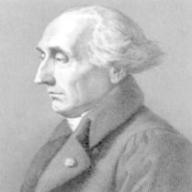pure maths MI
2009-11-02 8:34 pm
Given that x+1/x=2cosθ. Prove by mathematical induction that for ALL integers n, x^(n)+1/x^n=2cosnθ.
回答 (1)
2009-11-02 9:40 pm
✔ 最佳答案
let P(n) be the statementx^(n)+1/x^n=2cosnθ.
for n=1,
L.H.S. = x+1/x = 2cosθ = R.H.S.
∴ P(1) is ture.
Assume that P(k-1) and P(k) are ture.
i.e.
x^(k-1)+1/x^(k-1)=2cos(k-1)θ. and x^(k)+1/x^k=2coskθ.
for n= k+1
x^(k+1)+1/x^(k+1)
= [x^(k)+1/x^k][x+1/x] - [x^(k-1)+1/x^(k-1)]
= [2coskθ][2cosθ] - [2cos(k-1)θ]
=4coskθcosθ - 2cos(k-1)θ
=2[cos(k+1)θ + 2cos(k-1)θ]- 2cos(k-1)θ
=2cos(k+1)θ
Hence P(k+1) is ture, by the principle of mathematical induction,
the statement P(n)is ture for ALL integers n,
收錄日期: 2021-04-13 16:54:52
原文連結 [永久失效]:
https://hk.answers.yahoo.com/question/index?qid=20091102000051KK00439

